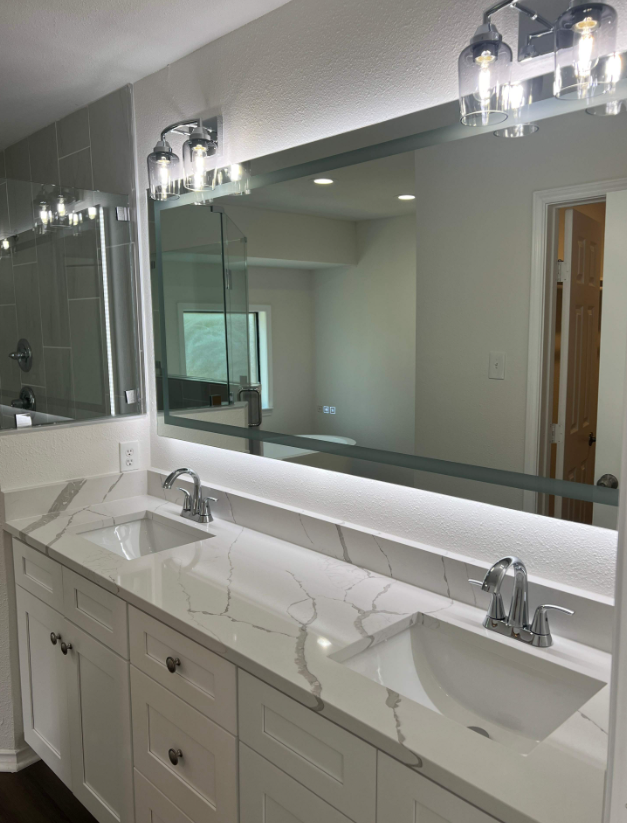*updated 5-9-25
Understanding FHA Flip Rule 2025
Thinking about flipping homes and cashing in with an FHA buyer?
Before you swing that first hammer, you need to understand FHA flip guidelines—because they can make or break your deal.
The FHA flip rule, especially the well-known 90 day flip rule, isn’t just red tape—it’s a timing strategy every smart investor must master.
These FHA guidelines exist to prevent rapid resales and inflated values, but if you know how to work within them, you’ll stay compliant and increase your odds of a successful and profitable closing.

What Is Property Flipping?
Property flipping is a real estate investment strategy that involves purchasing a undervalued or distressed property, typically at a discounted price from motivated sellers.
The flipper then renovates and makes significant improvements to the property to increase its appeal and marketability. According to industry experts, successful flippers aim to resell the renovated property at a higher price to buyers, often targeting first-time homebuyers or young families seeking move-in-ready homes.
However, it’s important to note that a property flip carries inherent risks, such as unpredictable market conditions, unexpected renovation costs, and the potential for over-investing in a property
The process comes with substantial risks such as managing renovation flip expenses, housing market fluctuations, interest rate volatility, labor management, and holding costs.
A successful flipped house increases the house value significantly, adhering to FHA property flipping rules, and ensuring their projects meet the required standards for potential FHA buyers.
What is the 90 Day FHA Flip Rule?
The 90 Day Flip Rule is a regulatory mandate set by the Federal Housing Administration (FHA) to prevent the inflation of property and the price paid by homebuyers from a person selling through a deceptive, quick and speculative resale process.
These FHA rules require that a flipped house not be resold within the FHA 90 day flip window of time to qualify for government back loans like an FHA mortgage unless it meets certain FHA flipping rule exceptions.
FHA Loans and Property Flipping
FHA loans are designed to help lower income borrowers purchase a home with FHA borrowing that might not be able to qualify for conventional loan requirements.
Government agencies are supportive of fostering the American Dream of home ownership by lowering down payments and are more forgiving of lower credit scores using an FHA loan requirements.
For house flippers, understanding mortgage approval requirements and FHA flip rules is paramount because these government backed loans options can greatly expand the available pool of home buyers for a renovated flipped home.
FHA loans facilitate access to a flipped home supply for those who might not qualify for conventional financing
FHA Flipping Guidelines 2025
The FHA guidelines on flipping are part of a broader strategy to a home with an FHA buyer program is safe and that the new buyers are getting fair value for their money.
These FHA flip rules stipulate:
- No FHA financing for properties bought within 90 days of acquisition.
- Between 91-180 days after purchase, a second appraisal is required by FHA rule if the sale price is 100% over the purchase price. This helps to ensure that the increased property value is justified by actual improvements.
After 180 days, the normal FHA flip rule applies, but the history of the property and the nature of the sale will still be scrutinized by FHA lenders using the FHA 90 day flip rule as a starting point and benchmark.

Case Study in Fort Worth, Texas
In our example of the 90 day flip rule in action, we have a flipped home investor named Carlos who went under purchase contract on May 1, 2025, and closed 30 days later on June 1, 2025 at a purchase price of $200,000.
He purchased a large ranch-style home in Fort Worth, Texas but the house was very dated and needs significant updates. The scope of work is an estimated $50,000.
Carlos previously did in-depth market analysis on Dallas area properties including the surrounding areas of Arlington and Grand Prairie homes for sale. He projects an ARV of $350,000, or a gross profit of $100,000 after rehab costs.
The potential flipped home, located in a highly sought-after Fort Worth neighborhood with great schools and access to transportation, needs significant updates to reach its potential in the current market.
Carlos invests $50,000 in major renovations, including modernizing the kitchen to an open concept and bathrooms, upgrading the HVAC system, and landscaping the yard to enhance curb appeal.
Carlos would be eligible for a potential homebuyer with an FHA backed loan on Saturday, August 31, 2025 which is the 91st day since the closing of this Texas property investment.
Carlos was able to finish the full renovation and put the Fort Worth flipped property on the market for $350,000 and it sold in early September 2023 for the full asking price of $350,000 to a young family eager to start a new chapter with their young children in the newly updated home.
This new home buyer and family used a FHA qualified loan to buy the house with a 3% down payment.

Comparison of FHA Loans vs Conventional and Other Government Backed Loans
When considering financing options for to flip houses, investors typically look at various loan options to how their end buyer will purchase homes, including FHA loan requirements, conventional mortgage loans, VA financing, and USDA backed loans.
Each of these has specific features and requirements that make them suitable for different situations and types of investors.
FHA Loans
Borrowers from the Federal Housing Administration program are appealing to many house flippers due to their lower down payment requirements—typically as low as 3.5%.
They also have more lenient credit score requirements compared to conventional mortgage approval, which can be beneficial for investors who may not have perfect credit but possess the skills for a successful home flip.
However, the FHA loan certification process comes with strict health and safety regulations properties owned must meet, which can increase the upfront cost and effort in flipping. Additionally, the mandatory mortgage insurance premiums (MIP) can add to the overall cost of the loan.
Conventional Loans
Conventional loans offered by private banks like JP Morgan Chase or Wells Fargo and not backed by a government agency and typically require a higher down payment, usually around 5% to 20%, depending on the borrower’s creditworthiness and the loan requirements and terms.
They can be more flexible in terms of property condition, making them a good option for properties that require extensive and expensive renovations that might not qualify for FHA financing.
However, acquiring a conventional loan often requires a higher credit score and a more stable financial history, which can be a hurdle for some investors.

VA Loans
Managed by the US Dept of Veterans Affairs, and specifically setup for military veterans, active-duty service members, and certain members of the National Guard and Reserves, VA loans and mortgage financing offers significant benefits for house flippers who qualify.
The major upside is when a VA mortgage complies with their requirements, then it requires no down payment and no private mortgage insurance (PMI), which can significantly reduce the upfront and ongoing costs.
However, VA loans require that the property be intended for personal occupancy, which may limit its use for a property flip unless the real estate investor intends to live in the home while renovating it.
USDA Loans
Aimed at aiding rural development, USDA loans in Texas offer no down payment options and low-interest rates for properties owned in qualifying rural areas. Like VA loan financing, they require the property to be the borrower’s primary residence, making them unsuitable for most traditional flipping scenarios.
However, for flippers looking to invest in rural properties and willing to occupy them, USDA loans can offer an affordable entry point.
Each of these loan types has its strengths and weaknesses depending on the property flipper’s financial status, real estate experience, credit score history, and investment strategy.
Investors should carefully consider their own circumstances and the specific requirements of each loan type when planning their investment strategies.
90 Day Flip Rule: Appraisal and Second Appraisal
Appraisals are a critical component of the FHA financing process, especially in the context of flipped properties.
An appraisal is primarily aimed at ensuring that the flip home with an FHA loan is worth the selling price and meets all FHA health and safety standards – flip or no flip.
This process is particularly important when dealing with flipped houses, where the value of the property can increase significantly in a short period due to upgrades and renovations.
How the Appraisal Process Works: For any FHA loan, the lender will require an FHA-approved appraiser to conduct a thorough assessment of the flip property. This appraiser evaluates the property based on a set of criteria that includes the condition of the flip property, the location, and comparable sales in the area.
The appraisal helps the lender determine the maximum loan amount provided to the buyer based on the property’s value. For flipped properties owned, this appraisal process is more stringent due to the increased potential for over-inflated prices due to cosmetic upgrades that do not match the essential market value increase.
What Appraisers Look For: In the case of flipped properties, appraisers look beyond the superficial enhancements to see substantial improvements that justify an increase in the property’s value.
The flip rule makes sure appraisers assess major systems worked on during the property flip process like foundation issues, HVAC, roofing, and structural integrity.
Appraisers also ensure that the flip property complies with all local building codes and FHA standards, which are designed to protect the health and safety of future occupants. Any short comings could be overcome with a seller credit for repairs to cover added expenses.
This detailed inspection helps prevent the FHA from insuring a flip home that is either overvalued or that poses risks to the homeowners.

The Need for a Second Appraisal: Under FHA guidelines on flipping, a second look appraisal is required from a different appraiser for properties that are resold within 90 to 180 days of the previous sale transaction and where the new selling price is 100% or more above the price at which the property purchased.
This is often called the “180 day flip rule.”
This 180 day flip rule is in place to protect homebuyers and FHA lenders from quick, and speculative property flippers that simply do cosmetic repairs which can lead to inflated appraisals and irregular pricing from a seller paid price.
The second appraisal seeks to verify that the renovations and repairs made to the property are substantial and warrant the increased price.
In other words, be sure to get renovation right the first time so won’t need to pray that the FHA home inspectors does not come back with a lower appraisal value.
It serves as a check against potential fraud and ensures that the investment is sound from a financial and physical standpoint.
A Few Exceptions To FHA Flipping Rules
- Inherited properties: Homes acquired through inheritance are exempt from the 90 day flip rule because the transfer of ownership for inherited properties does not typically involve a conventional sale. This means that the usual concerns about quick, profit-driven property flips do not apply. When a property is inherited, it often passes from the deceased’s estate directly to the beneficiary like a son or daughter or other family member. Consequently, beneficiaries from inherited properties can be immediate sellers without waiting for the 90 days FHA seasoning period. This exemption facilitates the easier handling of estate properties in real estate markets, allowing heirs to liquidate assets swiftly if necessary.
- Presidentially declared major disaster areas: The FHA may waive the 90 day FHA flip rule in areas that have been officially designated as disaster zones by the President. This exception is designed to expedite the recovery process by facilitating the quick subsequent resale of properties in these regions. After a major disaster, such as a hurricane or earthquake, the much needed investment capital to re-build can become disrupted and even missing, with many properties requiring significant repairs or reconstruction. The 90 day anti flipping rule can be exempted by having an area invoked as a Presidentially declared major disaster. Through this measure, other government agencies can help stabilize the pool of available private investment capital to access the affected areas. This not only aids in the overall recovery but also ensures that individuals and families have quicker access to safe and secure housing options post-disaster.
- Properties sold by HUD: Real Estate Owned (REO) inventory and properties purchased by nonprofit organizations approved to sell HUD properties.

Understanding these comprehensive FHA guidelines on flipping and exceptions to FHA flipping helps investors and home buyers navigate the complexities of buying or investing in flipped properties.
Knowledge of FHA flipping rules empowers buyers and ensures their investments in the real estate market are secure and compliant with federal regulations.
Common Mistakes in FHA Property Flipping and How to Avoid Them
When using a FHA loan for flipping houses, both new and experienced flippers can encounter several pitfalls that could jeopardize their flip projects.
One common mistake in flipping a property is overestimating the after repair value (ARV).
Property flippers sometimes assume that any renovation (flip or not) will significantly increase a property’s value, but not all improvements yield high returns. To avoid this, property flippers should conduct thorough market research and consult with real estate professionals to understand which renovations are most likely to increase the home’s flip value in their specific market.
Another frequent error is underbudgeting for flip renovation costs.
Unexpected flipping expenses are common in property renovations, and failing to account for these can lead to financial shortfalls that stall a flip project. Flippers should always add a contingency buffer—typically 10-20% of the estimated renovation budget on the flip —to manage unforeseen costs effectively.
Additionally, we think obsessively planning the scope of work and getting multiple contractor bids can help ensure a more accurate flip budget forecast.
Flippers also need to be mindful of the FHA flip rule and their strict eligibility criteria for flipping properties. Ignoring or being unaware of these requirements can lead to a situation where a property, despite substantial investment in the flip renovations, remains ineligible for FHA financing due to non-compliance with safety or structural standards.
To sidestep this potential financing problem, flippers should familiarize themselves with the FHA flip rule guideline and possibly work with property flipping consultants who specialize in FHA-compliant flip renovations and rules.
Lastly, a lack of proper documentation of the work completed during a flip project can derail the FHA loan approval process. Property flippers must keep detailed records of all renovation expenses, transactions, permits, contractor agreements, and upgrade activities.
These documents not only help in justifying the increased value of the flipped property but are also critical during the appraisal and loan approval processes on a flip property.
By maintaining organized and thorough documentation, property flippers can facilitate smoother transactions and enhance their credibility with potential FHA buyers.

By being aware of these common flipping houses mistakes and adopting strategic measures to avoid them, flip real estate investors can more successfully leverage FHA loans to finance their house flipping endeavors, maximizing their investment returns while minimizing risks.
Understanding and navigating the FHA flip rule is essential for real estate investors aiming to leverage FHA loans for flipping houses.
By adhering to the guidelines, being diligent about appraisals, and avoiding common pitfalls, investors can enhance the profitability and efficiency of their flip projects.
Since the FHA is government agency on the federal level, the rule for property remain the same across the country whether you are in Texas, Florida, California or Washington state, it is all the same.
The FHA’s regulations, including the FHA 90 day flip rule and the need for a thorough appraisal process, are designed to protect both the investor and the future homeowner, ensuring that each transaction is both financially sound and compliant with housing standards.
As flipping houses continues to be a popular venture, aligning investment strategies with FHA flip rule requirements will help investors avoid costly mistakes and capitalize on market opportunities to profitably flip a property.
FHA Flip Rules: Frequently Asked Questions
Can A Flipped Property Qualify For FHA Loan?
Yes, a flip property can qualify for an FHA loan if it passes the second appraisal value required for properties sold between 91 and 180 days after the initial purchase. This second appraisal of the flip project verifies that the increase in value generated by the flip renovation is genuine and substantiated by significant improvements during the property flip process, not just superficial and cosmetic changes.
Why does the FHA have the 90 day rule?
The FHA 90 day flip rule targets speculative excess in the real estate system and lowers any possible economic shock waves that are associated with the animal spirits of a real estate market boom in flipping that can artificially inflate home values and disrupt the US economy in general. By enforcing a mandatory rule and waiting period with the 90 day flip rule, the FHA helps ensure the market remains stable and that home buyers receive fair value for their investments.
Is Anti Flipping Rule Same as 90 Day FHA Flip Rule?
Yes, the “FHA anti flipping rule” and the “FHA 90 day flip rule” is reference to the same set of property flip rules and regulations set forth. These FHA rules are designed to restrict the practice of homebuyers and sellers quickly entering into a real estate transaction at a substantial profit, particularly when financed through certain types of loans like those insured by the FHA.
The term “FHA anti flipping rule” specifically emphasizes the intention to prevent or minimize this quick subsequent resale practice to protect both the house buyers and sellers from potentially inflated prices and unstable market conditions.
What is the HUD 4000.1 flipping rule?
The HUD 4000.1 flipping rule is detailed in the Federal Housing Administration’s (FHA) flip guidelines, which are included in the FHA Single Family Housing Policy Handbook, commonly referred to as HUD 4000.1. This set of guidelines focuses on “property flipping,” a practice where properties are bought and quickly resold at considerably higher prices, driven by speculative increases.
What is FHA appraisal logging?
FHA appraisal logging involves the recording or updating of appraisal report details into the FHA Connection system, typically following the validation and electronic transmission of the appraisal report via systems like Electronic Appraisal Delivery (EAD) or FHA Catalyst.
Purpose of FHA Appraisal Logging:
- Crucial for FHA Loan Processing: Before an application for FHA mortgage insurance can be submitted, the appraisal logging must be complete.
- Determines the Loan Ceiling: The property’s market value, established by the appraisal, is critical for setting the upper limit of the FHA-insured mortgage loan.
- Tracks Appraiser Compliance: The FHA monitors the quantity and quality of appraisals by approved appraisers to ensure adherence to guidelines and uphold standards.
- Need for Second Appraisals: Under certain conditions, like a recent sale at a higher price, a second opinion appraisal may be required.
For additional info, see the FHA Connection’s resources page for appraisal logging:

Disclaimer: The information contained in this article about the property flipping rule is for general information purposes only and is not intended to be a substitute for professional financial or legal advice on your flip project. Always seek the advice of a qualified financial professional and contractors specialized in flipping houses before making any investment decisions to flip a property. While we strive to provide accurate and up-to-date information to flip a property, we make no representations or warranties of any kind, express or implied, about the completeness, accuracy, reliability, suitability or availability with respect to the content provided on this page. For specific FHA loan guidelines and regulations to flip, please refer to the official website of the U.S. Department of Housing and Urban Development.

